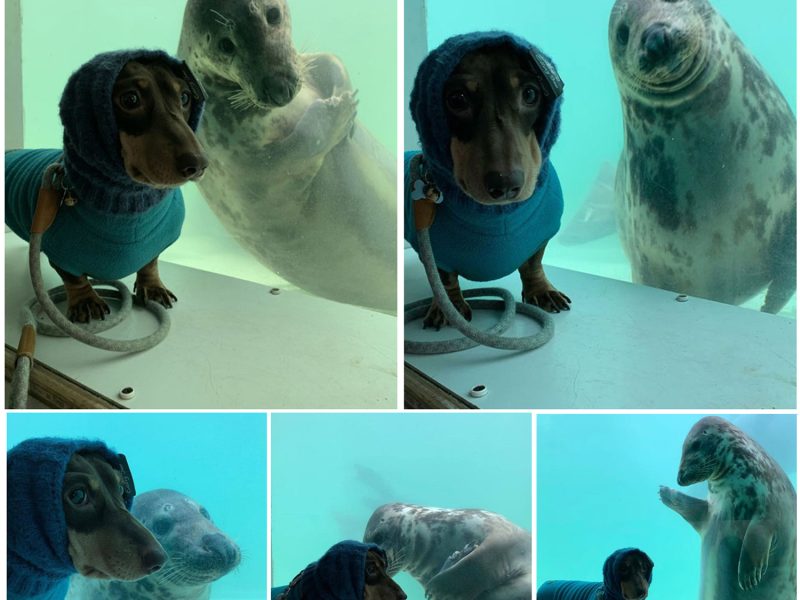Orca Lolita was removed from public view last year and left living in a shallow pool inside Miami Seaquarium, as new footage shows the poor animal floating aimlessly in the water
Heartbreaking aerial footage shows a lone orca being trapped in an oceanarium and floating aimlessly under the scorching sun.
Orca Lolita, also known as Tokitae, is the oldest orca in captivity – it was captured in August 1970 and has been locked up at Miami Seaquarium in the US, for the past 53 years.
Activist Phil Demers, 44, is on a mission to reveal the conditions of aquatic animals living in pools in Florida, despite them being just metres away from the sea.
Harrowing footage taken from above Miami Seaquarium shows Lolita living in a shallow pool with just a hose for enrichment while being exposed to the sun all day.
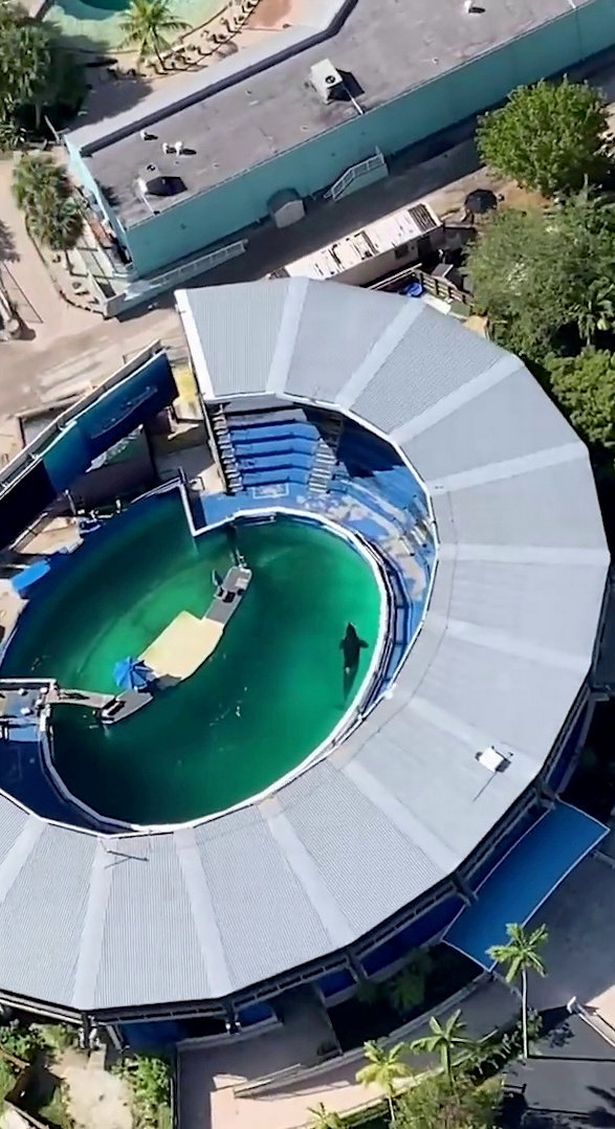
Orca Lolita has been kept in captivity for 53 years and recently been removed from public view (Image: SWNS)
Not far from Lolita are a pair of dolphins which are deemed “unreleasable”.
Phil, from Ontario in Canada, claims: “Lolita’s facility is far too small and has never actually met guidelines.” Phil refers to the demands laid out by the US Federal Animal Welfare Act.
“I took a helicopter flight over and saw myself how bad the conditions were. I have done water analysis myself and I just knew that her water was grossly compromised.
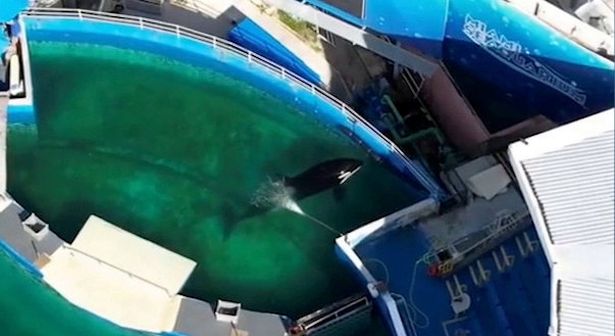
The killer whale floats aimlessly in the small pool under the bright sun (Image: SWNS)
“Providing me with evidence would improve their credibility so I don’t know why they won’t. It makes me not trust or believe them.”
He added that the animals are hidden from public view, which is also the reason why he chose to share the footage on social media.
He believes that these animals have been forgotten about but they need addressing, as no creature deserves the treatment they are experiencing.
In a previous statement, a Seaquarium spokesperson said: “Because many people have expressed concern about the size of Lolita’s pool, AC officials re-evaluated the measurements of her enclosure in 2011 and determined that it does in fact meet or exceed the AWA space requirements.”
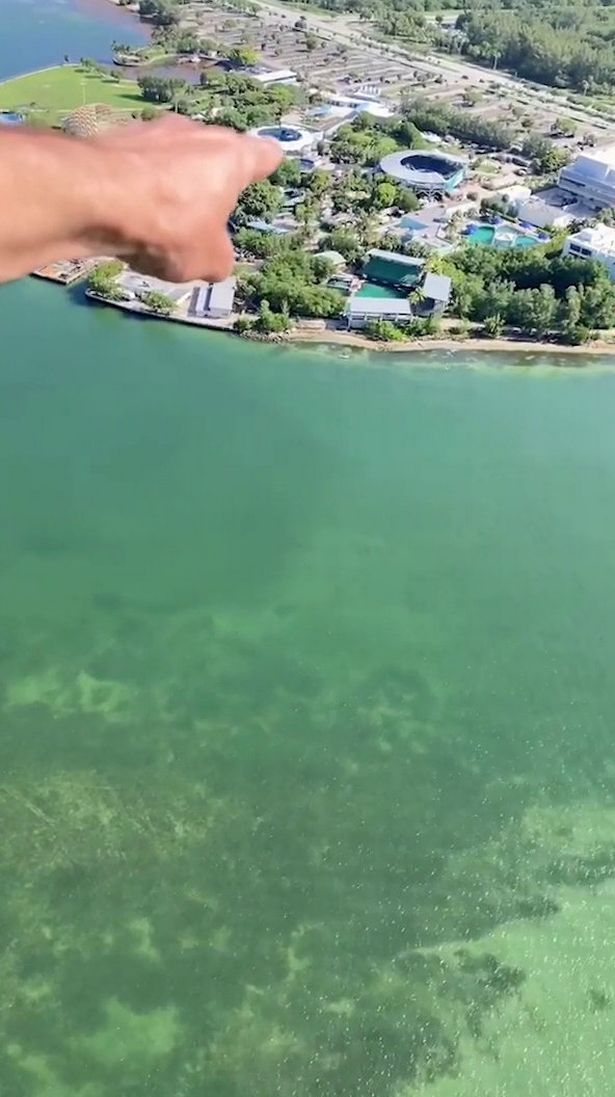
Activist Phil Demers took a helicopter ride to show how close Miami Seaquarium is to the sea (Image: SWNS)
By visiting sites around North America and sharing videos on social media, Phil hopes that people will join him in fighting for the rights of all animals in captivity around the globe.
He said: “The truth about these places is out there, you just need to be able to find it.
“People pay the admission fees and want to see these animals, so their conditions are normalised.
“Social media gives me a platform to use my own, unfiltered voice to share the truth – it is an incredibly powerful resource.
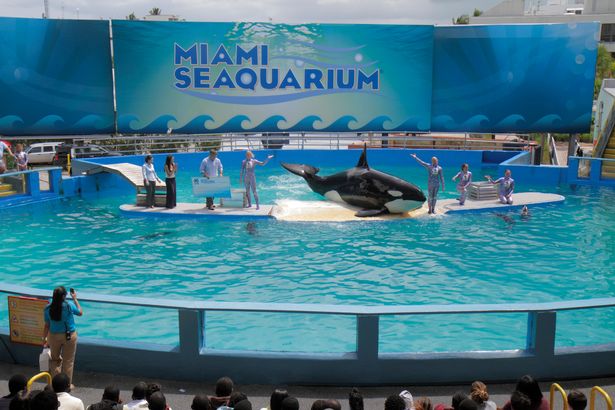
Lolita used to stage shows with trainers at the Miami Seaquarium (Image: Universal Images Group via Getty Images)
“I have had millions of views and lots of media attention which is great. I want to share what it happening and get people on board.
“It is a war. I am at battle with Miami Seaquarium, MarineLand, all of them.”
In December, Miami Seaquarium released a statement regarding the health of Lolita’s, also known as Toki.
They said the orca’s environment has been “greatly improved with a filtration system that produces water quality more closely aligned with a natural environment”.
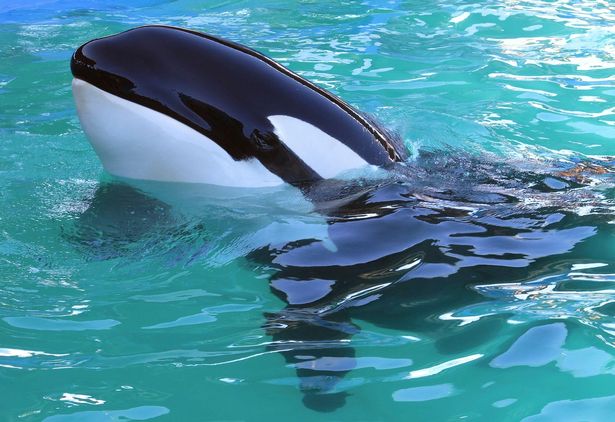
Phil is spreading awareness on social media to let others know more about Lolita (Image: Alamy Stock Photo)
It stated: “According to the veterinary team at the Miami Seaquarium, Toki’s behaviour supports the medical evidence that she is feeling better.
“Currently Toki’s team is focusing on training new voluntary medical behaviours to improve her overall welfare.
“They are also working to expand her enrichment, which includes learning exciting new cognitive behaviours to keep her engaged and mentally stimulated, which is so important for an animal of her age.”

